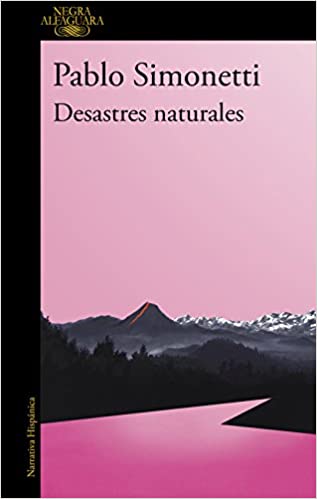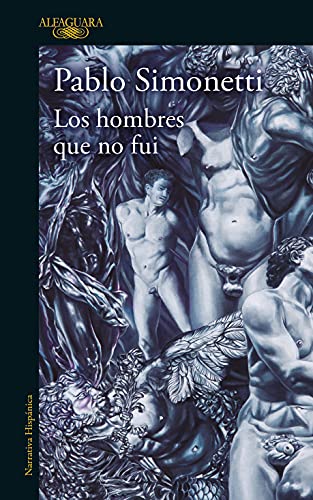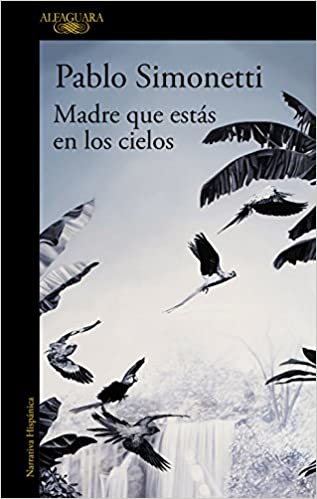Pablo Simonetti's stories are veiled confessions of protagonists who find a therapist in us. Only that the reader ends up reflecting on the corresponding plot from an inescapable empathy that soaks everything in the work of Simonetti.
intimacy with that brilliance of someone who risks undressing aspects in their characters that end up addressing us all. Placebo against another more frivolous vision of literature. Commitment to literature as a channel for humanistics. And it is not that in the attempt to "dignify" the novel, this author forgets the essence of an entertainment inherent in this type of reading. Rather, it is about complementing action and reflection. The perfect balance.
Introspection and analysis of life and what has been lived. But also suggestive developments around these more transcendent approaches. The adventure is life or perhaps it is the work on stage with the touch of improvisation that everyone has in their interventions before their audience.
Captivating surprises according to the essential protagonists, around which the plot, events and perspectives of the world usually pivot depending on the moment in which they are faced. The subjective like a rich mosaic where the color but also the aroma and even the touch seems to reach us from the paper.
Top 3 recommended novels by Pablo Simonetti
Natural disasters
There are differences between some parents and children that suppose inaccessible slopes down which love seems to fall, or, on the contrary, that are unattainable in their climb. The worst thing is to find yourself in the intermediate zone, not knowing if you are going up or down, with the risk of falling off a cliff at every moment, suffering from moral and generational differences.
The biggest victims, in the end, are usually the children. And I think that's the case with Marco. At adulthood, Marco is unable to reconcile with his past, with that stage in the family that he longs for would have passed differently. Only a small moment emerges like a sprout of hope. There was an instant for the connection between him and his father, during a trip, so remote in memory as perhaps disturbed by memory and for a time that ended up punishing Marco too much.
But Marco needs to rebuild himself, rebuild himself with some hint of success, of rootedness to what he was. Feeling guilty for a sexuality ends up being a Freudian problem with unforeseeable consequences, and he wants to no longer suffer that punishment, that internalized guilt due to his father's misunderstanding.
Marco ends up undressing the reader, showing that space where the human passes from childhood to adulthood, with all the tensions typical of leaving adolescence, multiplied in his case by the marked discovery of his essence, a reality without possible fit with the family ideology.
Marco would have liked to have thought that he could ever hug his father asking for forgiveness. And that his father had assured him that there was nothing to forgive. But it never happened like that, and Marco ended up transitioning between his nascent sexuality and his traumas. And the reader discovers everything, with the same intensity as if it were put under the skin of the character.
In the setting of a changing Chile, with the detail of some of those natural disasters that announce the title of the book, we discover a suggestive metaphor between worlds that are crumbling at the moment, that succumb to the earthquakes that arise from within the earth and from the emotions.
The men I wasn't
You are never what others expect of you. But worse is not being what one expects of oneself. Expectations on both sides of the mirror to make existence hang like a sword of Damocles suspended as long as the will remains firm.
Through a series of encounters with people who were part of his past, the narrator of The Men I Wasn't Confronts his memory, his decisions and the drifts his life has taken, giving way to the portrait of "a world of beautiful, tyrannical and unsuccessful forms, of inculcated rules that could become deadly».
With an enlightening look, combining melancholy and liberation, Pablo Simonetti writes about the possible lives that we are abandoning with each of our decisions, about belonging and exclusion, against the background of a burning Santiago that will allow the protagonist to leave the past definitely back.
Mother who art in heaven
Probably Pablo Simonetti's most personal work. Probably because it was that first foray into his most intimate lyrics. And when one embarks on a genre where the very personal vision of the world of the characters counts above all, almost always one begins with oneself mutated into the protagonist of the day...
With seventy-seven years in tow, Julia Bartolini decides to spend her last days writing her memoirs. Memories of her give him the strength to face her illness. She believes that in this way she will be able to regain the feeling that she had a life worth living.
Marked by Italian immigration to the country that began at the end of the 19th century and the rigid idea of family imposed by the Catholic Church throughout the 20th century, Julia unravels the resentments forged in her childhood, for which she had no solution in adulthood. She tries to decipher the figure of an authoritarian but devoted husband, and especially her relationship with two of her children, who defied the codes of conduct of her time and her hopes.
Above all, she wants to find the explanation for having failed in what was most important to her: forming a happy family.
Mother who are in heaven is the story of the fears and conflicts of a woman who can now reflect on her life without deceiving herself, as well as a testimony of redemption in front of her loved ones. This work, which established Pablo Simonetti in the Chilean and international literary world, has become one of the readers' favorite novels.



